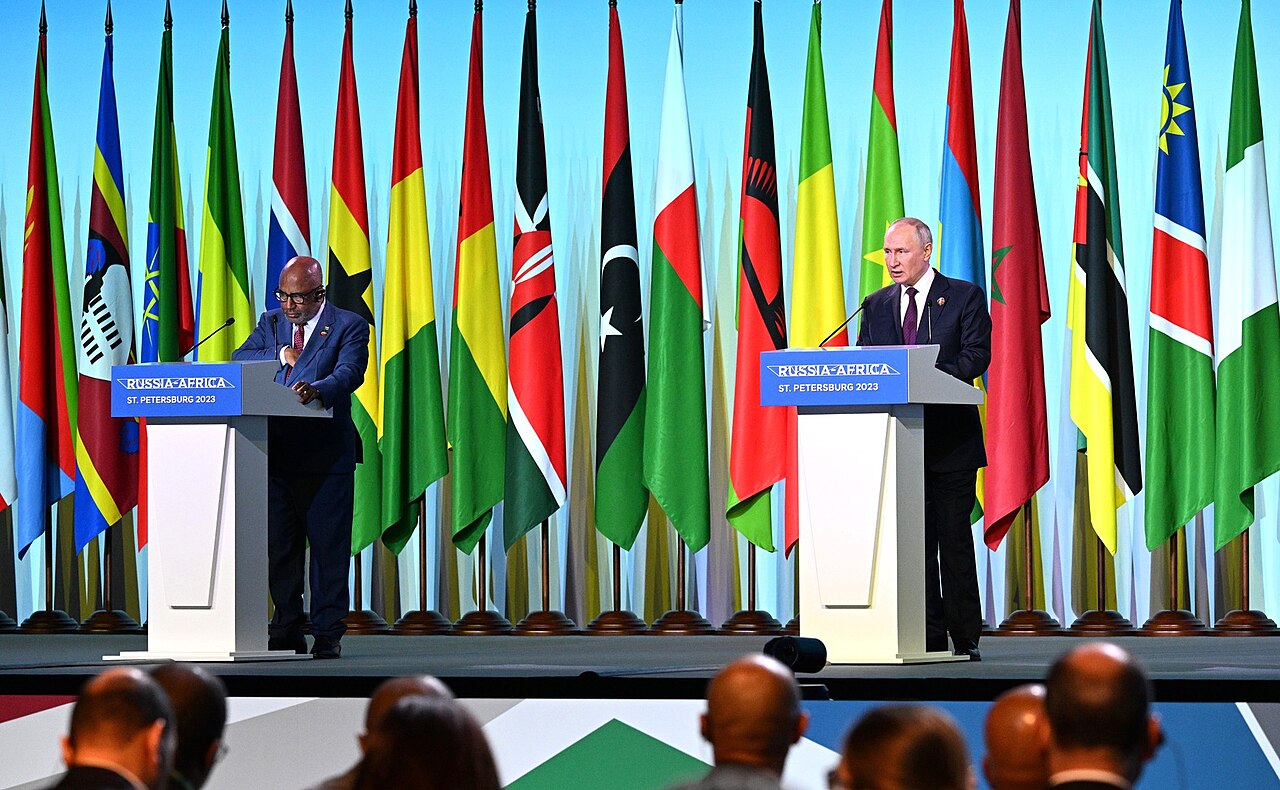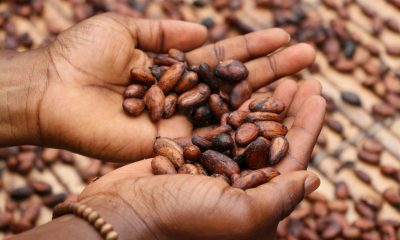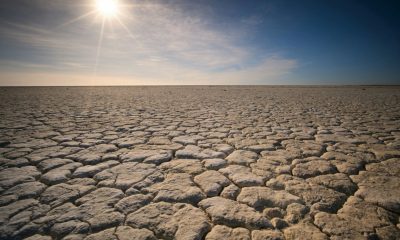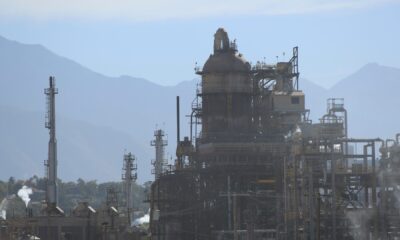Africa
Russia-Africa Summit, Successes, Struggles, and the Road Ahead – A Summary
The recent Russia-Africa Summit resulted in over 120 contracts and cooperation within the African Continental Free Trade Area. Russia’s trade with Africa, reaching 18 billion US dollars was highlighted, along with significant efforts made in debt relief, including the cancellation of 23 billion dollars of debt. Despite progress, however, challenges remain in Africa-Russia economic cooperation.

Between strengthening economic partnerships, canceling a portion of the debt, and advocating for better representation of Africa in the community of nations, Vladimir Putin made multiple announcements to appeal to the 49 African delegations that traveled to Russia on July 27th and 28th at the Russia-Africa Summit.
“I particularly want to highlight the very good conditions that were created to make this summit a real success,” declared Azali Assoumani, President of Comoros and current President of the African Union (AU), adding: “When Russia wins, Africa wins,” at the conclusion of the Russia-Africa Summit on July 28.
Notable Absentees at Russia-Africa Summit
Indeed, although the number of African heads of state at the 2023 Russia-Africa Summit was lower than in Sochi (17 presidents in 2023 vs 45 in 2019) and despite some notable absences (Alassane Ouattara or Félix Tshisekedi, who were preparing to inaugurate the Francophonie Games), the presence of 49 African delegations demonstrates the good standing of Russo-African relations. “The figure for Russia’s trade with African countries increased in 2022 to reach almost 18 billion US dollars,” the Russian president emphasized in a letter sent to African delegations on July 24, a few days before the Summit.
Vladimir Putin took advantage of this Russia-Africa Summit to call for closer ties between the AfCFTA (African Continental Free Trade Area, which has nearly 1.3 billion consumers) and the Eurasian Economic Union (EAEU), which includes Belarus, Kazakhstan, Russia, and Armenia, and represents a market of over 184 million consumers.
The volume of foreign trade between the African Union (AU) and the countries of the EAEU has “increased by 60% in seven years” to reach nearly “19 billion dollars (…) At the same time, EAEU exports to African markets have increased by 74%, imports by 15.5%,” Dmitry Volvach, Deputy Minister of Economic Development, said during the “EAEU-Africa: horizons of cooperation” session scheduled during the Russia-Africa Summit economic forum.
Over a Hundred Agreements Signed at 2023 Russia-Africa Summit
While the stands dedicated to armaments experienced some success, Vladimir Putin sought to move beyond the “all-military” aspect. The focus at this year’s Russia-Africa Summit was on diversifying Russo-African partnerships. More than 120 contracts and memorandums of understanding were signed during these 48 hours of meetings, and a three-year action plan was put in place to develop economic, political, and cultural cooperation between Africa and Russia.
From civil aviation in Burkina Faso to customs in Ethiopia to the Olympic Committee in Eswatini, partnerships cover all sectors of activity. Uganda and Russia, in particular, announced the signing of an agreement for the construction of a nuclear power plant (in 2019, Uganda signed an intergovernmental agreement with Moscow to enhance nuclear technology capabilities).
In addition, the issue of African countries’ debt was raised in the Russia-Africa Summit debates. “Russia participates in efforts to alleviate the debt burden of African countries,” Vladimir Putin declared during his plenary intervention, adding that “the total amount of debt canceled amounts to 23 billion dollars.” As early as July 27, Russia granted debt relief of 684 million dollars to Somalia, whose debt amounts to nearly 4.6 billion dollars. Vladimir Putin also announced the release of 90 million dollars in development aid.
Finally, on the issue of food security, the Russian president promised, at the opening of the Russia-Africa Summit, “free deliveries of 25,000 to 50,000 tons of grains to Burkina Faso, Zimbabwe, Mali, Somalia, the Central African Republic, and Eritrea.”
Africa Expects More Cooperation with Moscow
“Despite the excellence of their political relations, Africa and Russia still have efforts to make to give more substantial content to our economic cooperation,” said Senegalese President Macky Sall at the Russia-Africa Summit, not without mentioning the “potential” of such a partnership.
“Africa is 30 million km2, more than 1.3 billion people. Russia is over 17 million km2 and more than 144 million people. Together, our continent and your country constitute a demographic giant and have most of the planet’s natural resources. We have almost everything to cooperate in: agriculture and agri-food, infrastructure, hydrocarbons, mining, transport, industry, and ICT, to name just a few sectors,” he added.
In 2019, Russia aimed to double its trade volume with Africa. Four years later, the Covid-19 pandemic and the war in Ukraine have upset Russian prospects, and the results are below expectations. Trade between Africa and Russia only increased by 7% last year, and Russian influence in Africa has mainly been seen in the military field through the growing presence of the Wagner militia, and in the domain of information warfare 2.0 that opposes Paris to Moscow.
Finally, the Russian president largely revisited Africa’s place in the concert of nations (with regard to the mediation mission last June on the conflict between Ukraine and Russia), arguing for better international representation of African countries and calling for the establishment of a “multipolar order” devoid of “colonialism.”
At the end of this Russia-Africa Summit, the countries participating in the Russia-Africa Summit adopted a joint declaration in which they agreed to expand their political, security, commercial, economic, and climate cooperation.
__
(Featured image by Pavel Bednyakov, RIA Novosti (CC BY 4.0) via Wikimedia Commons)
DISCLAIMER: This article was written by a third party contributor and does not reflect the opinion of Born2Invest, its management, staff or its associates. Please review our disclaimer for more information.
This article may include forward-looking statements. These forward-looking statements generally are identified by the words “believe,” “project,” “estimate,” “become,” “plan,” “will,” and similar expressions. These forward-looking statements involve known and unknown risks as well as uncertainties, including those discussed in the following cautionary statements and elsewhere in this article and on this site. Although the Company may believe that its expectations are based on reasonable assumptions, the actual results that the Company may achieve may differ materially from any forward-looking statements, which reflect the opinions of the management of the Company only as of the date hereof. Additionally, please make sure to read these important disclosures.
First published in La Tribune. A third-party contributor translated and adapted the article from the original. In case of discrepancy, the original will prevail.
Although we made reasonable efforts to provide accurate translations, some parts may be incorrect. Born2Invest assumes no responsibility for errors, omissions or ambiguities in the translations provided on this website. Any person or entity relying on translated content does so at their own risk. Born2Invest is not responsible for losses caused by such reliance on the accuracy or reliability of translated information. If you wish to report an error or inaccuracy in the translation, we encourage you to contact us.

-

 Impact Investing7 days ago
Impact Investing7 days agoThe Sustainability Revolution: Driving a Net-Zero, Nature-Positive Economy
-

 Biotech2 weeks ago
Biotech2 weeks agoNew Molecular Clues Explain Aggressive Neuroblastoma and Point to Targeted Treatments
-

 Business4 days ago
Business4 days agoTopRanked.io Weekly Affiliate Digest: What’s Hot in Affiliate Marketing [EKSA Affiliate Program Review]
-

 Fintech2 weeks ago
Fintech2 weeks agoSwissHacks 2026 to Launch Inaugural Swiss FinTech Week in Zurich

























